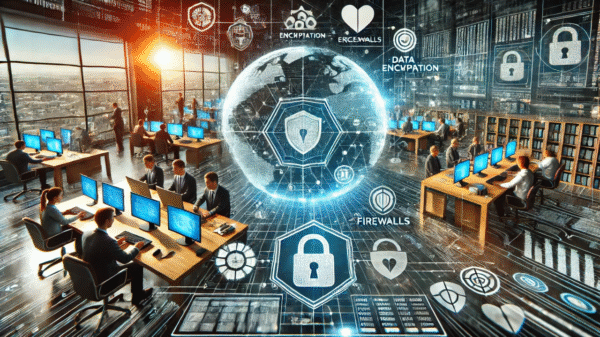The Importance of Cybersecurity for Accountants
As accountants, it is essential to prioritize the security of sensitive financial data. With the increasing reliance on technology and the rise in cyber threats, protecting client information has become more critical than ever. Cyberattacks can have severe consequences, including financial loss, reputational damage, and legal implications. Therefore, implementing robust cybersecurity measures is crucial to safeguarding both your clients’ data and your own professional reputation.
Understanding the Threat Landscape
Before delving into cybersecurity best practices, it is important to understand the various threats accountants may face. Cybercriminals employ a wide range of tactics, including phishing, malware, ransomware, and social engineering, to gain unauthorized access to sensitive financial information. They exploit vulnerabilities in computer systems, networks, and human behavior to carry out their malicious activities. Accountants must stay informed about the latest threats and continuously update their defenses to stay one step ahead of cybercriminals.
Implementing Strong Password Policies
A weak password is one of the easiest ways for cybercriminals to gain unauthorized access to financial data. Accountants should enforce strong password policies that require a combination of uppercase and lowercase letters, numbers, and special characters. Passwords should be regularly updated and never reused across multiple accounts. Additionally, enabling multi-factor authentication adds an extra layer of security by requiring a second form of verification, such as a fingerprint or a unique code sent to a mobile device.
Securing Computer Systems and Networks
Accountants should ensure that their computer systems and networks are adequately secured. This includes keeping operating systems, software, and antivirus programs up to date with the latest security patches. Firewalls and intrusion detection systems should be in place to monitor and block unauthorized access attempts. Regular backups of critical data should also be performed to mitigate the impact of potential data breaches or system failures.
Training Staff on Cybersecurity Best Practices
Human error is often a significant contributing factor in cyber breaches. Accountants should invest in regular cybersecurity training for themselves and their staff to raise awareness about potential threats and educate them on best practices. This includes recognizing phishing emails, avoiding suspicious websites, and securely handling sensitive information. By fostering a culture of cybersecurity awareness, accountants can significantly reduce the risk of successful cyberattacks.
Partnering with a Trusted Cybersecurity Provider
Given the complexity and ever-evolving nature of cybersecurity, accountants may benefit from partnering with a trusted cybersecurity provider. These experts can assess the firm’s vulnerabilities, develop tailored security solutions, and provide ongoing monitoring and support. By outsourcing cybersecurity to professionals, accountants can focus on their core responsibilities while having peace of mind knowing that their clients’ data is in safe hands.
Staying Informed and Adapting to New Threats
Cybersecurity is not a one-time effort but an ongoing process. Accountants should stay informed about the latest cybersecurity trends, emerging threats, and best practices. Subscribing to reputable cybersecurity blogs, attending industry conferences, and participating in relevant webinars can help accountants stay up to date with the rapidly evolving threat landscape. By continually adapting their cybersecurity strategies, accountants can effectively mitigate the risk of cyberattacks and protect sensitive financial data.
Conclusion
Protecting sensitive financial data is of utmost importance for accountants. By implementing strong cybersecurity measures, such as enforcing strong password policies, securing computer systems and networks, training staff on best practices, partnering with trusted cybersecurity providers, and staying informed about the latest threats, accountants can significantly reduce the risk of cyberattacks. Prioritizing cybersecurity not only safeguards client information but also maintains the integrity and trustworthiness of the accounting profession as a whole.
































